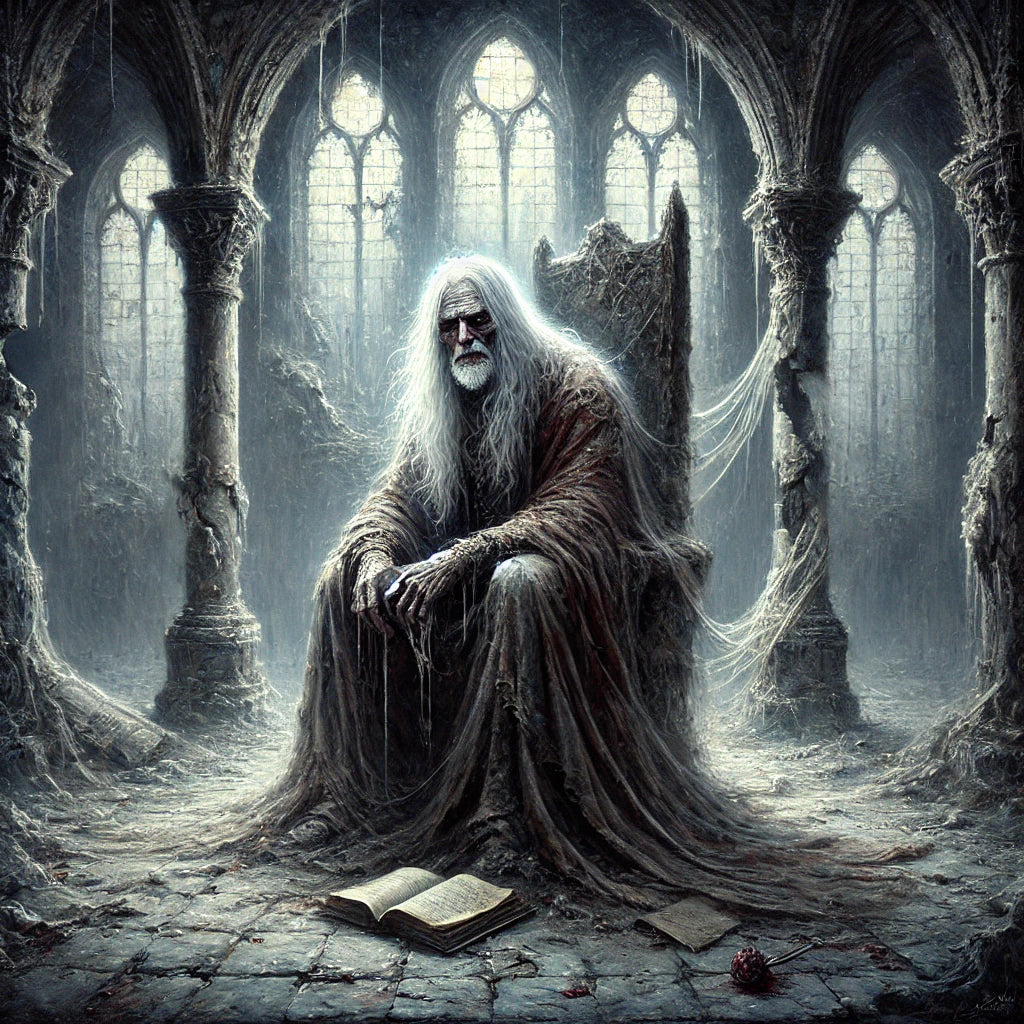Blood Eternal – Part 3: Age
Blood Eternal – Part 3: Age
Realizm and Ekspresjonizm
Wampiry i nietoperze and Fantastyka i science fiction
Lead time
Lead time
⏳ Delivery time
The order processing time depends on: the production technique, the drying time of the paints, the size of the image and any hand-finishing and protection.
🖼️ Art print on canvas
-
High quality canvas printing :
- Canvas - synthetic canvas 260 g
- Natural Canvas - 260 g cotton canvas
- Stretching the canvas onto the frame
- Quality control and packaging
Total completion time:
🎨 Oil Giclée Reproduction (print + hand-finished)
-
Giclée print on canvas:
- Canvas premium - natural cotton canvas 360 g
- Pigment print drying
- Hand finishing: texturing and oil painting
- Paint drying (depending on layer thickness, medium type and format)
- Stretching the canvas onto the frame
- Quality control and packaging
Total completion time: –
🚚 Ready-made paintings – shipped within 24 hours
Our gallery has a special category called "Ready-Made Paintings" - these are works available immediately, already stretched on a frame or in a ready-made frame.
- They are 100% ready for immediate shipment
- Safe packaging in a reinforced cardboard box
Shipping takes place within: from the date of booking the order.
Image format: Reprodukcja Oil Giclée
Need a different size? Contact us.
Couldn't load pickup availability
1. Title
"Blood Eternal – Part 3: Age"
2. Description of the image
In this haunting scene, we see a vampire who has reached the end of his immortal journey. He sits on a crumbling stone throne in a deserted Gothic cathedral—a temple that, like himself, has survived the centuries but has not remained intact. Long, silver hair falls to his shoulders like spiderwebs of time, and his eyes, once blazing red, now barely glow. In his hands rest a worn book and a withered rose—silent relics of memory, loss, and unfulfilled desire.
Almost complete silence reigned around him: broken stained-glass windows cast a dim, subdued light, and the cathedral's columns were overgrown with moss and cracked. The ground was strewn with ash and dried blood—traces of what had passed and would never return.
3. Technology
The painting is executed on raw canvas using oil. Thick layers of impasto emphasize the roughness of the throne and the ruins, the stippling technique reveals the structure of decay and aging, and the glazes soften the light streaming through the damaged windows, creating an atmosphere of dreamlike time stopping.
4. Style
The style of the work is based on melancholic symbolism and the aesthetics of ruin. It draws inspiration from reflective painting, in which architecture and the body become metaphors for fate and existential burden. This is a painting that remains silent more than it speaks—but each of its silences is as deep as an abyss.
5. Colors
The palette is cold and muted—grays, silver, black, and black-red dominate, broken by the pale blue of moonlight. Each color is like a memory—faded, yet full of emotion.
6. Invoice
The texture of the painting is most palpable in the details of the stone, the book, and the hair—heavy with time. The background has been treated with a glaze, as if blurring with reality, fading into silence.
7. Inspiration
-
Caspar David Friedrich – for contemplating ruin and loneliness.
-
Zdzisław Beksiński – for existential decay and monumental silence.
-
Andrei Tarkovsky (aesthetically) – for the meditative nature of space and light.
8. Message and interpretation
It's an image not of death, but of eternity that has become a prison. A symbol of endless life that offers no salvation. The vampire doesn't wait—he already knows that nothing will come. Only he remains, the memory, and the echo of blood that has ceased to flow. It's a reflection on the fate we desired before we understood its cost.
9. Originality
"Blood Eternal – Part 3: Age" is not just the conclusion of the triptych—it is its essence. A final image, filled with silent drama and an almost sacred aura. The viewer doesn't watch—the viewer feels the weight of eternity on their own shoulders.
Share


